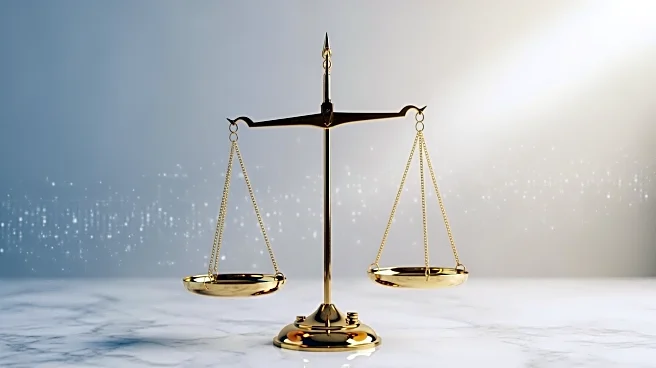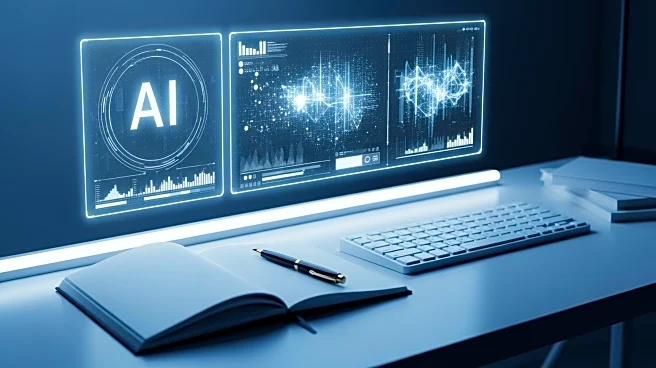What's Happening?
Pope Leo XIV has emphasized the need for a global regulatory framework for artificial intelligence, highlighting the technology's potential threats to human dignity, justice, and labor. During a Vatican
seminar titled 'Digital Rerum Novarum: Artificial Intelligence for Peace, Social Justice, and Integral Human Development,' participants called for a halt to the AI arms race and the establishment of a binding global framework supported by major tech institutions. The seminar also discussed the importance of 'neuro-rights' to protect individuals from invasive technologies, such as brain chips. The event resulted in the creation of the AI Knowledge Network for Integral Human Development in Latin America, aiming to foster ethical and inclusive AI development.
Why It's Important?
The Catholic Church's call for a global AI regulatory framework underscores the growing concern over the ethical implications of AI technologies. As AI continues to advance, there is a pressing need to address issues such as privacy, labor displacement, and social justice. The church's influence could potentially sway governments and tech companies to adopt more responsible AI practices. The focus on 'neuro-rights' highlights the ethical challenges posed by emerging technologies that could impact human cognition and autonomy. The initiative in Latin America aims to ensure that AI development benefits society as a whole, rather than exacerbating inequalities.
What's Next?
The Vatican's push for AI regulation may lead to increased dialogue among international stakeholders, including governments, tech companies, and civil society organizations. The establishment of a global framework could pave the way for more standardized and enforceable AI policies. The AI Knowledge Network in Latin America is expected to promote collaboration and research on ethical AI practices, potentially influencing policy decisions in the region. As the Catholic Church continues to advocate for responsible AI development, further initiatives and discussions are likely to emerge, focusing on the social and ethical dimensions of technology.
Beyond the Headlines
The Catholic Church's involvement in AI regulation highlights the intersection of technology and ethics, raising questions about the role of religious institutions in shaping technological advancements. The emphasis on 'neuro-rights' suggests a growing awareness of the potential risks associated with brain-computer interfaces and other invasive technologies. The call for 'technological social justice' reflects broader concerns about the equitable distribution of AI benefits, including discussions on Universal Basic Income and cooperation among various stakeholders.










